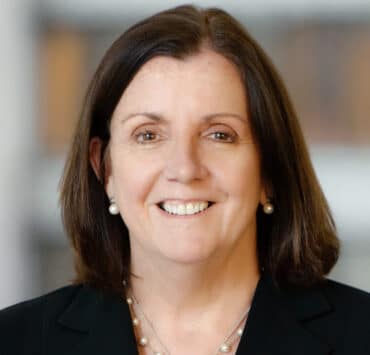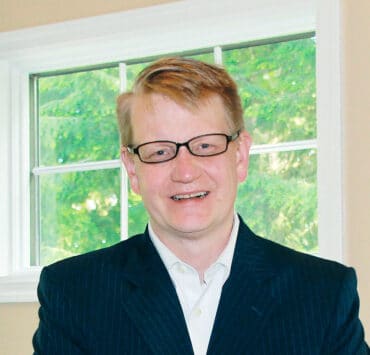Mohamed Humaidi dreamed of becoming a doctor for years before he immigrated to the United States after high school. However, with no knowledge of English or a familial support system in the country, he soon recalibrated. He put medical school off the table, enrolling instead in an undergraduate program in computer information systems on the recommendation of a friend that he met in an English as a Second Language course.
A chance offer to join health insurance provider MetroPlus Health Plan as a part-time customer service representative while he was in school connected Humaidi with the healthcare industry, albeit in a different capacity than he had once hoped. “That was my first opportunity to work as a data analyst,” he says. “It showed me that I could help patients in many different ways.”
The intersection of information systems and healthcare proved to be a perfect place for Humaidi to build his career. As the culmination of his upward trajectory since that initial customer service role, he currently serves as vice president of healthcare data and analytics at Franciscan Alliance. At Franciscan, a healthcare system operating out of Illinois and Indiana, Humaidi leverages his two decades of industry experience to enhance business practices and patient care alike through data and technology.
From the start, Humaidi demonstrated an aptitude for data analytics. He climbed the ranks within MetroPlus before doing the same at fellow insurance organizations EmblemHealth and Affinity Health Plan, where he held his first director-level position.
In 2015, Northwell Health—New York’s largest healthcare provider—recruited Humaidi as assistant vice president of accountable care analytics. “They needed someone to develop their operation health capabilities,” he explains. “I grew the team from the ground up and built a state-of-the-art data structure foundation for claims data warehousing and care management.”
Humaidi remained at Northwell for over four years, during which time he received a promotion to VP status. He stepped into a vice president of analytics role at Franciscan in late 2019 and gained his current title shortly thereafter.
“My role is to build our analytics enablement capabilities,” Humaidi says of his current duties. “I’m working with payers to enable more frequent data processing so that we can develop a 360-degree view of patients for our physicians to access at the point of care.”
The 360-degree view encompasses not only Franciscan’s patient data but also claims data and social determinants of health data—information that Humaidi believes will assist doctors in caring for patients before they even fall ill. With more data at their fingertips, doctors can take a wider range of factors into account when providing medical advice.
Humaidi further advanced Franciscan’s ability to conduct population health analyses by establishing a claims data warehouse similar to the one that he set up at Northwell. He has also introduced new querying and visualization tools, retired outdated legacy systems, and engaged enterprise cloud data management company Informatica to help streamline organizational processes and promote data quality and integrity.
But before he could begin achieving his objectives at Franciscan, Humaidi first needed to assess and restructure the team that he inherited upon his arrival at the organization. In addition to bringing in new leaders and talent as necessary, he broke down the team into three groups: data management, strategic advanced analytics, and clinical. “The three teams work very closely together to support the business needs,” he notes.
“Data without tools, technologies, and people is not an asset. But data with tools, technology, and people can become an asset for any organization.”
Humaidi personally stays abreast of business needs through regular meetings with Franciscan’s senior leadership regarding their strategic goals. He recently implemented a dashboard of quality measures to assist organization leaders in gauging progress toward those goals as well as overall performance across various categories, further enabling Franciscan to become a leader in healthcare outcomes.
Beyond long-term planning, Humaidi collaborates with operational leaders to prioritize immediate work efforts based on available resources—contributions that have mattered all the more since the onset of the COVID-19 pandemic. COVID amplified the demand for data as well, leading Humaidi to focus on patient tracking with the aim of improving treatment and support. He brought together members of the coding and documentation teams along with healthcare providers, technicians, and nurses to ensure the standardization of information system-wide.
In general, Humaidi views data and technology as key facilitators of collaboration. At the same time, he understands the role that people play in unlocking the full potential of such resources. “Data without tools, technologies, and people is not an asset. But data with tools, technology, and people can become an asset for any organization,” he says.
As he pushes for Franciscan to invest in the human side of the equation moving forward, Humaidi plans to continue growing the organization’s technological footprint. In particular, he has secured approval to build a data lake and a data hub to consolidate data from scattered sources. The project will underpin Franciscan’s upcoming artificial intelligence initiatives and solidify the organization’s predictive analytics capabilities. Moreover, Humaidi will be able to resolve issues and address business needs more efficiently, to the benefit of patients who depend on Franciscan for care.
“It’s critical for healthcare providers to get the data that they need to act with appropriate insight at the point of care,” Humaidi emphasizes. “We want to be more proactive in taking care of the population that we serve so that we can provide the best possible care in real time.”
He may not have become a doctor himself, but Humaidi demonstrates every day the possibility of improving patient care from behind the scenes—one piece of data at a time.
KPMG LLP helps organizations work together in new ways to transform and innovate the business of healthcare. We offer a portfolio of services focused on helping our clients comply with regulatory change, improve healthcare outcomes, embrace IA and AI, adapt to healthcare consumerism, and transact to gain market entry.


